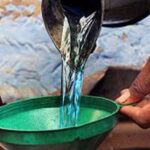The Senate has endorsed a budget of N446,342,656,992.00 for the Federal Inland Revenue Service (FIRS) for the fiscal year 2024.
The unanimous passage by the Senate was predicated on the recommendation of its Committee on Finance, chaired by Senator Sani Musa (APC – Niger East), which meticulously evaluated and green lit the budget proposal.
According to the committee’s report, the approved budget allocation is divided as follows: N177,441,479,682.00 earmarked for personnel cost, N156,454,385,053.00 for overhead cost, and N112,446,822,255.00 designated for capital expenditure. Notably, the committee underscored that the 2024 budget estimates for the FIRS were crafted based on zero based budgeting principles.
The report highlighted a significant increase in the projected cost of collection for 2024, amounting to N446.34 billion, representing a 39 percent surge compared to the 2023 approved budgeted cost of collection standing at N320.90 billion.
This augmentation, as elucidated by the committee, is aimed at fortifying operational activities crucial for achieving the FIRS’s core objectives, particularly emphasising tax automation projects and other vital initiatives directly related to tax collection and administration.
Moreover, the escalation in overhead projection was attributed to the imperative of fostering more robust operational activities, crucial for driving the attainment of the service’s strategic objectives. The capital cost estimates encompass both ongoing and new projects slated for execution during the 2024 financial year, including the anticipated completion of existing projects, payment of retention on completed projects, and initiation of new projects geared towards enhancing revenue generation capabilities.
The Senate’s approval of the FIRS budget underscores the government’s commitment to strengthening revenue mobilisation efforts, particularly in the face of evolving economic dynamics. This move is expected to bolster the service’s capacity to execute its mandate effectively, enhance tax compliance, and ultimately contribute to sustained economic growth and development in Nigeria.





